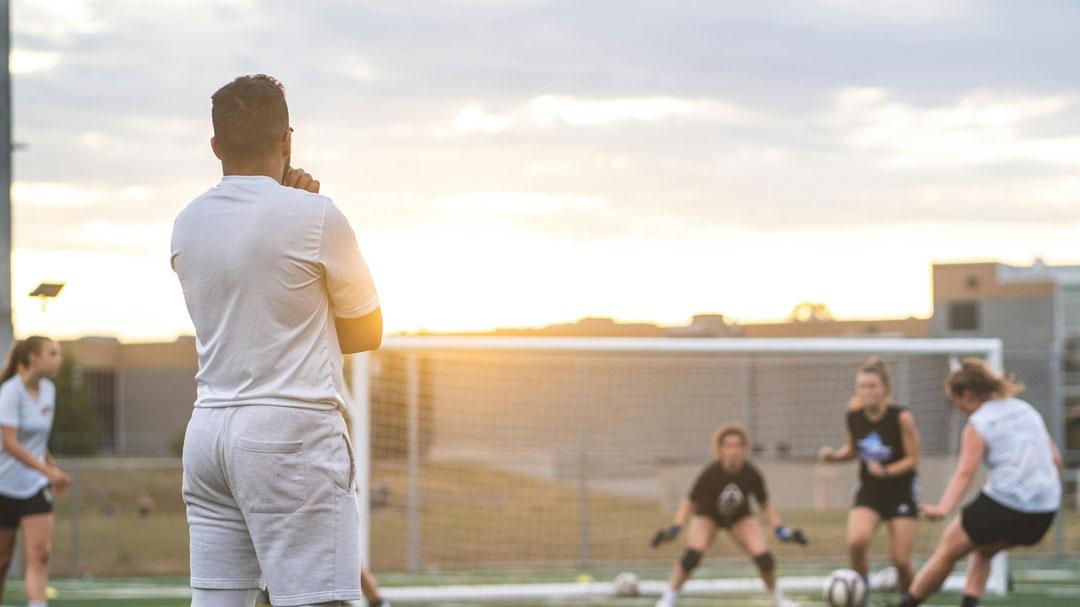In the fast-paced world of sports—especially soccer—reaction time can be the difference between winning and missing a critical opportunity. Whether you're scoring a goal, intercepting a pass, or responding to an opponent’s move, your ability to react quickly is essential.
At A-Champs, we’ve explored not just how to improve reaction time in sports, but also what affects it. From physical fitness to mental alertness, nutrition to stress, this guide breaks down the key factors influencing reaction time—and how you can optimize each one to elevate your performance.
1. Physical Fitness: A Strong Body Reacts Faster
One of the most crucial factors affecting reaction time is physical conditioning. A well-trained body supports faster reflexes and sharper movements. Regular exercise boosts blood flow to the brain, supporting cognitive functions.
But beware: overtraining can lead to fatigue, actually slowing reaction time. Balance is key—train hard, but recover smart.
2. Sleep: The Foundation of Cognitive Sharpness
Sleep deprivation is one of the most underestimated factors that negatively affects reaction time. Without quality sleep, your brain struggles to process stimuli efficiently.
Getting enough rest helps improve memory, focus, and processing speed—all of which are vital for quick reactions on the field or in everyday life.
3. Mental State: The Role of Focus, Stress & Pressure
Your mental state significantly influences your reaction speed. Stress and anxiety can create mental blocks, while confidence and calmness often lead to better performance.
Techniques like mindfulness, meditation, and breathing exercises can reduce stress and improve focus—giving your body the signal to react faster and more accurately.
4. Nutrition & Hydration: Fuel for Fast Responses
What you eat and drink plays a direct role in cognitive performance and motor speed. A diet rich in omega-3 fatty acids, antioxidants, and vitamins supports brain function.
Meanwhile, dehydration and poor nutrition can slow reflexes and delay response times. Staying properly fueled ensures your brain and body are ready for action.
5. Age: Speed vs. Experience
Reaction time typically peaks in your 20s and gradually declines with age. However, experience can compensate for slower reflexes—especially in sports like soccer, where reading the game well can reduce the need for rapid reactions.
- Younger athletes: Focus on sharpening reflexes.
- Older athletes: Maximize decision-making and anticipation.
6. Visual Acuity & Sensory Processing
Sharp vision and fast sensory processing are essential for reacting to fast-moving objects and players. Visual cues, sounds, and even vibrations affect how quickly you interpret and respond to a situation.
Training your sensory system helps you make faster and more accurate decisions. Use tools like our ROX System to simulate real-game scenarios.
7. Tactical Knowledge: Thinking Ahead
Understanding the game allows you to anticipate plays and make faster decisions. The more tactical awareness you have, the less reactive and more proactive you become.
However, overthinking during a match can cause hesitation. Find a balance between instinct and strategy.
8. Gender Differences in Reaction Time
Research shows that neurological and hormonal differences can influence reaction times between males and females. While the gap is often small, it's important to consider these differences when designing training programs.
9. Cognitive Load & Multitasking
Juggling too many tasks can overwhelm the brain. A high cognitive load slows down your ability to process information and make decisions quickly.
Tip: Simplify tasks and practice focused repetition to build faster reaction patterns.
10. Environmental Factors: Conditions Matter
Weather, field surface, and lighting conditions affect both reaction time and decision-making. Adapting to different environments is a skill in itself, and players who can adjust quickly have a competitive edge.
11. Team Communication & Dynamics
Your teammates play a role too. Strong communication and chemistry enable anticipatory movements, reducing individual reaction time through better coordination.
12. Sleep Deprivation & Intoxicants
Lack of sleep and substance use can delay your reaction speed and reduce accuracy. These impairments are similar to the effects of alcohol and can drastically affect performance.
13. Training Tools: How to Improve Reaction Time with ROX
At A-Champs, we’ve developed the ROX System to address every element that impacts reaction time. Our system uses lights, sounds, and vibrations to create real-game scenarios that demand quick cognitive and physical responses.
Benefits of ROX:
- Combines physical drills with mental challenges
- Boosts motivation through gamification
- Tracks progress through the A-Champs app
- Supports tailored routines for different ages, genders, and experience levels
Conclusion: Optimize Reaction Time for Peak Performance
Improving your reaction time isn’t about fixing one thing—it’s about optimizing many. By addressing physical fitness, mental focus, nutrition, sleep, training tools, and environmental adaptation, you can build a faster, sharper, and more responsive version of yourself.
Whether you’re a soccer player, athlete, gamer, or just looking to level up in life, knowing what affects reaction time—and how to train it—gives you a winning edge.
Ready to train smarter? Start your journey with A-Champs and unlock your full potential.
FAQs
What is reaction time and why is it important in sports?
Reaction time is the interval between a stimulus and your response. In sports, a faster reaction time improves performance by helping athletes anticipate and act swiftly during critical moments.
Can you train to improve your reaction time?
Yes. Targeted training with tools like the ROX System can sharpen reflexes, enhance focus, and reduce decision-making latency.
Does age affect reaction time?
Yes. Reaction time tends to peak in early adulthood and slow with age. However, experienced athletes can offset this through better anticipation and game reading.
How does sleep affect reaction time?
Sleep is critical. Deprivation slows brain processing and motor skills, making it harder to react quickly during training or competition.
What foods help improve reaction time?
Foods high in omega-3s, antioxidants, and hydration support optimal brain and nerve function, which are vital for fast reactions.





Leave a comment
This site is protected by hCaptcha and the hCaptcha Privacy Policy and Terms of Service apply.